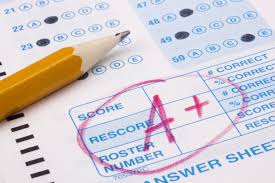BHS Has No Weight

During class sign ups for each school year, students are faced with a choice for many of their core classes, take the base class or opting for a more advanced AP course. What’s holding many students back from taking AP courses is the fact that BHS lacks any sort of a weighted GPA. A traditional GPA is fairly simple, an A = 4.0, a B = 3.0, C = 2.0 and so on. A weighted GPA differs in that the scale is stretched to allow for more difficult classes. So an AP physics class might give you 5.0 for an A instead of 4.0, and then a B might equal 4.0. Under this system, more people could be encouraged to take rigorous courses because it gives you more of a cushion if you do badly. Someone who would be challenged by an AP english class could still take it and preserve their 4.0 if they got a B.
BHS Junior Michael Dehmer has taken two AP classes in high school so far, AP U.S. History and AP Calculus. Michael enjoyed that he had options to take more advanced courses, although he admits,
“It would be cool if GPA was weighted, it would give a more accurate picture of your workload.”
Michael got an A in both rigorous courses, but as far as his GPA shows, he took the same level class as everyone else. A weighted GPA let’s colleges look at how difficult your course load is, how much credit you deserve for going above and beyond.
“I think that if we had a 5.0 GPA scale, more people would want to take AP courses. It would be cool just to see more people signing up,” Michael said.
As it stands today and for the foreseeable future, there are no plans to change the GPA scale. Still, the question remains, why? The obvious benefit is the ability to have a number more accurately represent your whole workload. It would let advanced students excel, without forgetting about the average student. There aren’t really any blatant cons to adopting this system either. Ultimately, the new scale would let colleges easier examine each student’s knowledge and potential.





